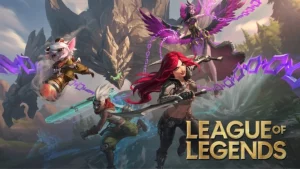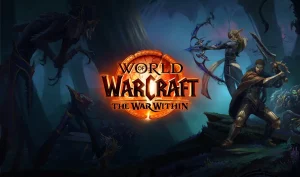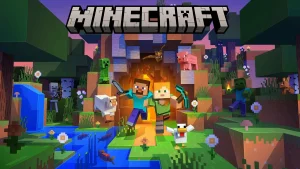Introduction
In recent years, gaming communities have emerged as a powerful force within the world of video games, transforming the way players interact, share experiences, and influence the industry. These vibrant networks of gamers, connected by shared interests and passions, have not only changed the dynamics of gameplay but have also had a profound impact on game development, marketing, and cultural perceptions of gaming. This article delves into the rise of gaming, their impact on the video game industry, and what the future holds for these influential groups.
The Evolution of Gaming

The evolution of gaming from solo experiences to communal activities has been driven by technological advancements and the increasing accessibility of the internet. In the early days of gaming, players were largely isolated, engaging with games on personal computers or consoles without much interaction with others. However, as technology progressed, so did the ability to connect with fellow gamers.
The advent of online multiplayer games marked a significant turning point, allowing players to compete and collaborate with others across the globe. Titles like “World of Warcraft,” “Counter-Strike,” and “League of Legends” became pioneers in fostering online gaming, where players could team up, strategize, and form lasting friendships.
The Role of Gaming Communities in Game Development

One of the most significant impacts of gaming communities is on the game development process itself. Developers now actively engage with their communities during the creation and testing phases of new titles. This feedback loop allows creators to understand what players want, which features they enjoy, and which aspects require improvement.
Early access programs and beta testing have become standard practices in the industry, giving community members the opportunity to provide input before a game’s official release. Developers also monitor fan forums, stream chat discussions, and social media conversations to ensure they are meeting player expectations. As a result, gaming have a direct influence on the success or failure of new games.
Competitive Gaming and E-Sports
Gaming communities are also the backbone of the booming e-sports industry. What started as small gatherings of competitive players has evolved into a global phenomenon, with multi-million-dollar tournaments and international leagues. E-sports communities are highly organized, with fans, sponsors, and players all contributing to the growth of the industry.
Community-driven platforms like Twitch have helped e-sports gain mainstream attention, allowing fans to watch live matches, follow their favorite players, and interact with others in real-time. As a result, e-sports has become not just a hobby but a legitimate career path for many professional gamers.
Social Interaction and Inclusivity in Gaming Communities

One of the most profound impacts of gaming is their ability to foster social interaction. Whether through casual games like Animal Crossing or competitive titles like Fortnite, these communities bring people together. This social interaction is vital for players who may feel isolated or disconnected in other aspects of life.
Gaming communities have also played a pivotal role in promoting inclusivity. Over the years, players have advocated for greater representation in games, including diverse characters and storylines that reflect a broader spectrum of experiences. Many communities actively work to create safe spaces where players of all identities can engage without fear of harassment or discrimination.
Fostering Collaboration and Creativity
Gaming communities are not just about playing games; they are also hubs for creativity and collaboration. Modding, or modifying games to create new content, is a perfect example of this. Games like The Elder Scrolls V: Skyrim, Minecraft, and Grand Theft Auto V have thriving modding communities where players create everything from new characters to entirely different worlds.
The rise of user-generated content has added new dimensions to games, extending their lifespan and keeping them relevant years after their release. In many cases, these creative contributions have led to game developers hiring talented modders to work on official projects or expansions.
The Impact of Gaming Communities

-
Influencing Game Development
Gaming communities have become a valuable resource for game developers, providing feedback and insights that shape the development process. Developers often engage with communities through forums, social media, and beta testing programs to gather input on gameplay mechanics, features, and overall player experience.
Community feedback has led to significant changes and improvements in games, as developers strive to meet the expectations and desires of their player base. This collaborative approach has resulted in more player-centric games, where the community’s voice is heard and valued.
-
Driving Innovation and Creativity
The creativity and passion within gaming communities have sparked innovation in the industry. Modding communities, for example, have produced a wealth of user-generated content that extends the lifespan of games and introduces new gameplay elements. Games like “Skyrim” and “Minecraft” have thriving modding communities that continually push the boundaries of what is possible within the game world.
Additionally, gaming communities have inspired the creation of entirely new genres and gaming experiences. The rise of indie games can be attributed, in part, to the support and enthusiasm of gaming communities, who champion unique and unconventional titles that might not have gained traction through traditional publishing channels.
-
Shaping Cultural Perceptions
Gaming communities have played a significant role in reshaping cultural perceptions of gaming. Once seen as a niche hobby, gaming has become a mainstream form of entertainment, thanks in large part to the efforts of passionate communities who advocate for the positive aspects of gaming.
Through charity events, community-driven initiatives, and inclusive practices, gaming have demonstrated the potential for games to bring people together, promote social good, and foster a sense of belonging. Initiatives like “Games Done Quick” and “Extra Life” showcase the charitable impact of gaming communities, raising millions of dollars for various causes.
Challenges Facing Gaming Communities

Despite the numerous benefits, gaming communities also face challenges. Toxic behavior, such as harassment, cheating, and cyberbullying, can create hostile environments that drive away players. Game developers and community managers have implemented various measures to combat these issues, from moderation tools to banning toxic users.
Additionally, as gaming communities grow, there is a risk of fragmentation. With so many platforms, genres, and subcultures within the gaming world, maintaining a cohesive sense of community can be difficult. Developers must find ways to foster inclusivity while balancing the diverse interests of their players.
The Future of Gaming Communities

As technology continues to evolve, gaming communities are poised to become even more integral to the gaming experience. Virtual reality (VR) and augmented reality (AR) technologies offer new opportunities for immersive and interactive community experiences. Imagine gaming communities gathering in virtual spaces, where they can engage with games and each other in entirely new ways.
Moreover, the continued growth of mobile gaming and cloud gaming services will make gaming more accessible to a global audience, transcending geographical barriers and connecting players from diverse backgrounds.
Analysis Table
| Aspect | Impact on Gaming Industry |
| Game Development | Feedback from communities influences game mechanics and design. |
| Collaboration & Creativity | Modding communities extend the lifespan of games. |
| Social Interaction | Communities promote inclusivity and foster social connections. |
| E-Sports Growth | Communities drive competitive gaming and e-sports popularity. |
| Commercial Impact | Communities boost sales through word-of-mouth marketing. |
| Challenges | Toxicity and fragmentation are significant concerns. |
Comparative Table
| Feature | Pre-Internet Gaming Communities | Modern Gaming Communities |
| Size | Small, local groups | Global, millions of members |
| Communication | In-person or limited forums | Instant online communication |
| Developer Interaction | Minimal | Active collaboration |
| Content Creation | Limited to official content | User-generated mods and assets |
| Social Interaction | Local multiplayer | Online multiplayer, social media |
| Competitive Gaming | Casual, local competitions | International e-sports leagues |
Conclusion
In conclusion, the rise and impact of gaming communities on the world of video games cannot be overstated. These communities have transformed the way games are played, developed, and perceived, fostering a sense of connection and collaboration among players worldwide. As the gaming industry continues to evolve, gaming communities will undoubtedly remain at the forefront, driving innovation, creativity, and positive change.




